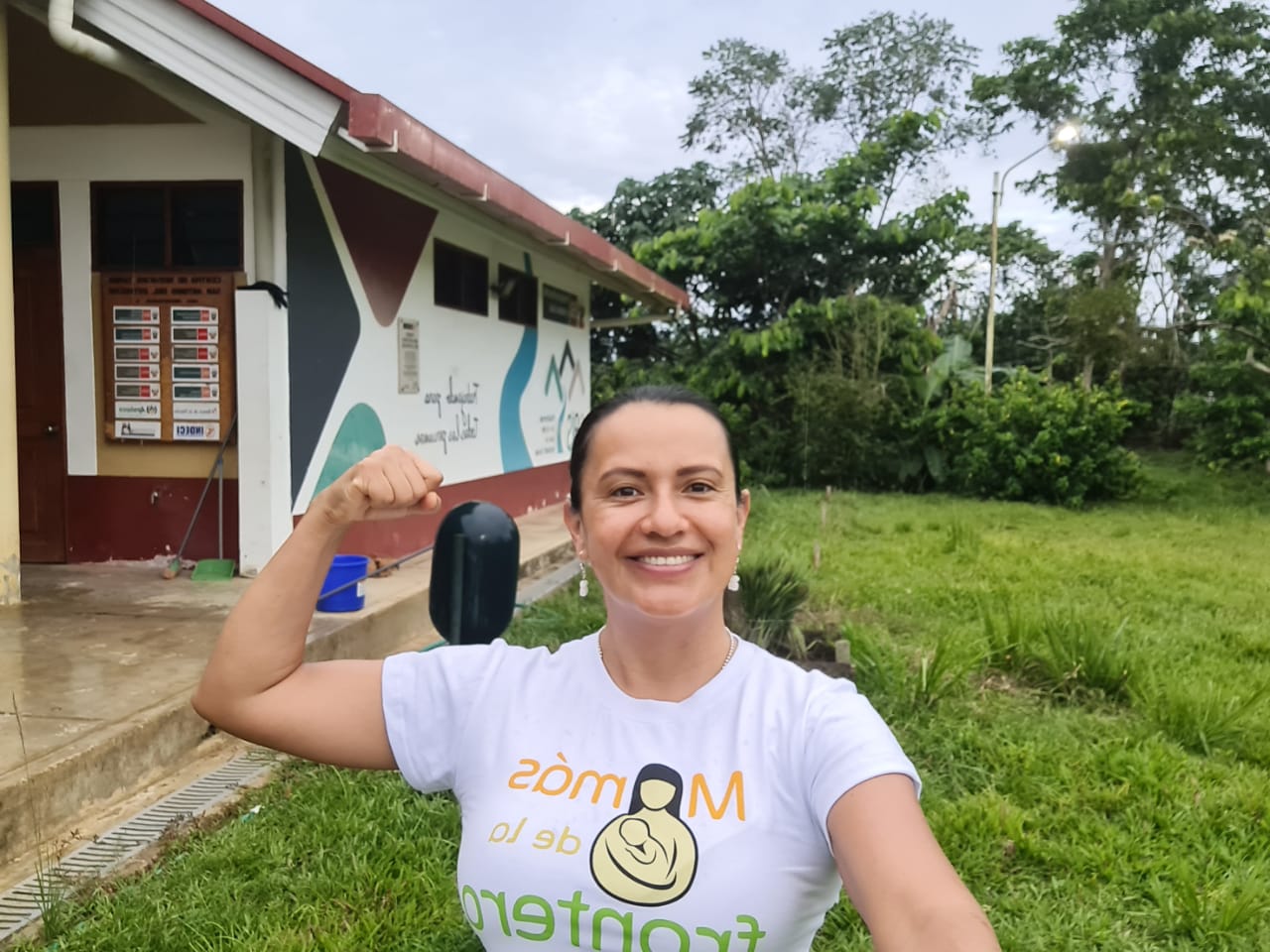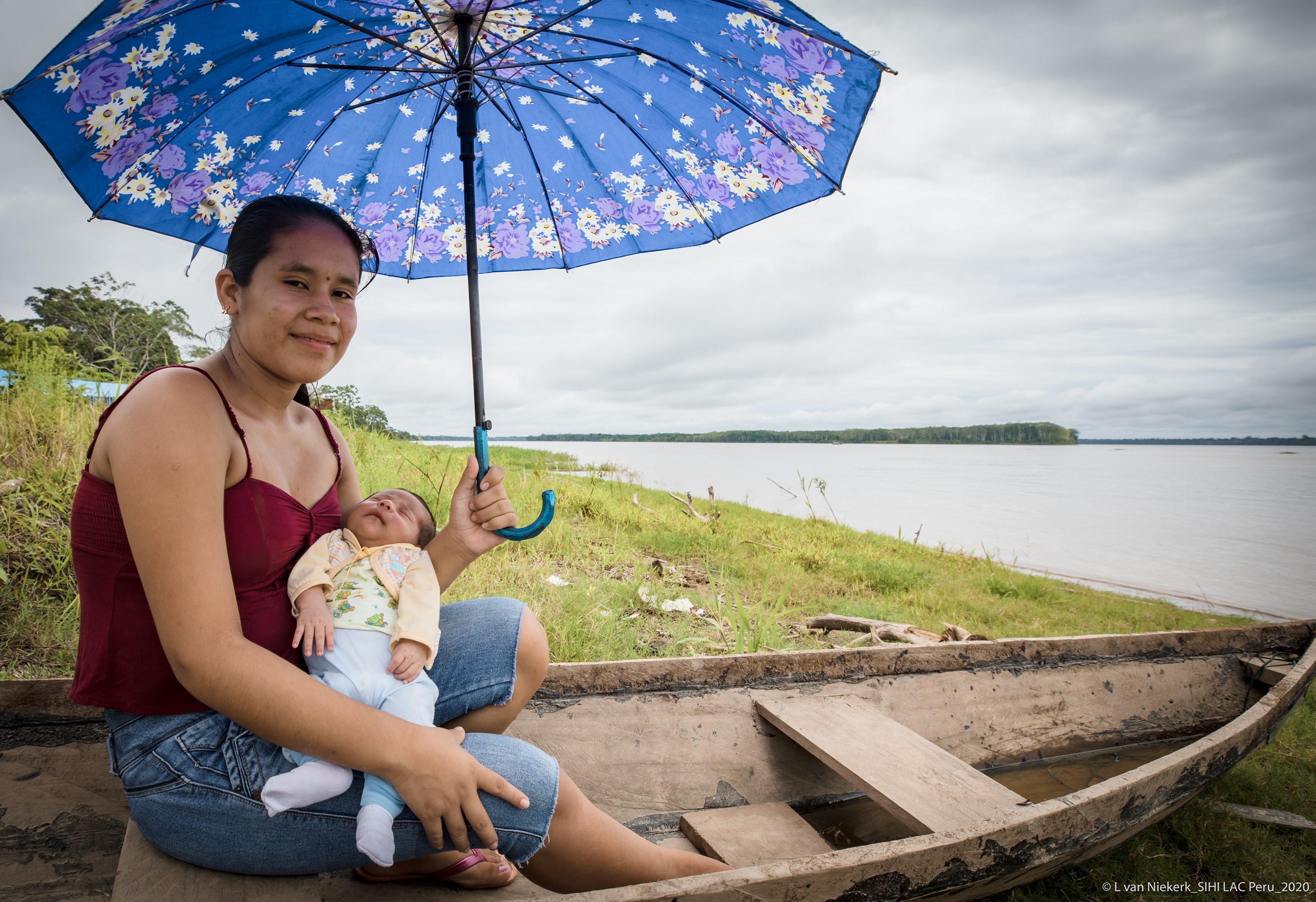
From an early age, Dr Magaly Blas wanted to fight against injustice and inequity, which she saw in Peru’s rural indigenous communities.
“When I was a child, my mum used to take me to the Peruvian Sierra where she supervised social projects and, along the way, I saw a world that we don’t see in the capital, people who don’t have access to basic services,” says Dr Blas.
And it was later, as a medical student working on childhood anaemia in Peru’s Amazon region, that she fell in love with its rainforest and its people. She saw first-hand how difficult it was for these communities of almost one million people to access health care: health facilities are often far away and difficult to get to, they can be short-staffed and poorly equipped, and they often lack basic infrastructure.
Dr Blas, who is an epidemiologist and researcher at Cayetano Heredia University in Lima, observed how Peru's Amazon rainforest is a region with high maternal and infant morbidities and death. She saw how most mothers had no choice but to give birth at home, with their babies sometimes dying from preventable infections. Unfortunately, essential newborn care was not readily available in these rural areas and Dr Blas and her colleagues found hygienic conditions to be lacking. It was uncommon to see immediate skin-to-skin contact with newborns together with low levels of early breastfeeding. Both of these practices can be essential to a newborn’s survival.
In response to these problems, Dr Blas established the Mamás del Río (Mothers of the River) project to improve maternal and neonatal health in this rural area. Her method? To train community health workers (CHW) to identify and confirm pregnancies through community engagement and enrol pregnant women in a home visitation scheme. Using computer tablets to disseminate information and monitor the women, CHWs would conduct six home visits – three in the period before birth and three after birth. During their visits, CHWs would educate on newborn and immediate birth care practices, as well as distribute clean delivery kits. They could also report any high-risk pregnancies to health facilities. In their follow-up, they would reinforce newborn care and refer any low birthweight babies to a health facility.

A mother and her newborn in the Loreto Region of Peru.
Credit: L. van Niekerk
As Dr Blas explains in an episode of TDR’s Global Health Matters podcast: “We're working in more than one hundred communities along four rivers in a 700 kilometres extension, and we're working in communities that do not have access to water, electricity or sanitation. And they don't have access to medical care. That is why we believe in building capacity within the community by training community health workers.”
The Mamás del Río project was one of several social innovations selected following an open call from the Latin America and Caribbean hub of the Social Innovation in Health Initiative, which was established 10 years ago through TDR’s leadership. The success of the Mamás del Río project has been evident. Based on early survey work and census data from 2019, Dr Blas and her colleagues knew that most women (two out of three) gave birth at home, usually without a skilled attendant. Following their 18-month pilot study, the percentage of women receiving prenatal care in the first trimester increased from 38% to 63%, and institutional delivery assistance doubled from 16% to 37%, thus reducing complications and providing timely response to potential maternal and perinatal emergencies.
In 2019, Dr Blas received the Social Innovation in Health Initiative award from the Pan American Health Organization for Mamás del Río.
“I think that before Mamás del Río, my approach was to get the research done. With Mamás del Río I learned that the focus should be the people and that I can use the research to make a difference.”
An additional positive outcome of the project is the fact that the government of neighbouring Colombia has adopted it for their health care system. They have named it Mothers of the Border.
“We have grown from a national initiative to an international initiative with the support now of several organizations, including the Ministries of Health of Peru and Colombia, the Ministry of External Affairs and also the Inter-American Development Bank,” she says. “The key thing is not only to find an innovation that has shown to be effective, but how you can turn it into a public policy that will really stay in the country, which is a challenge for any social innovation.”
For further information on the Social Innovation in Health Initiative, please contact Dr Michael Mihut.

